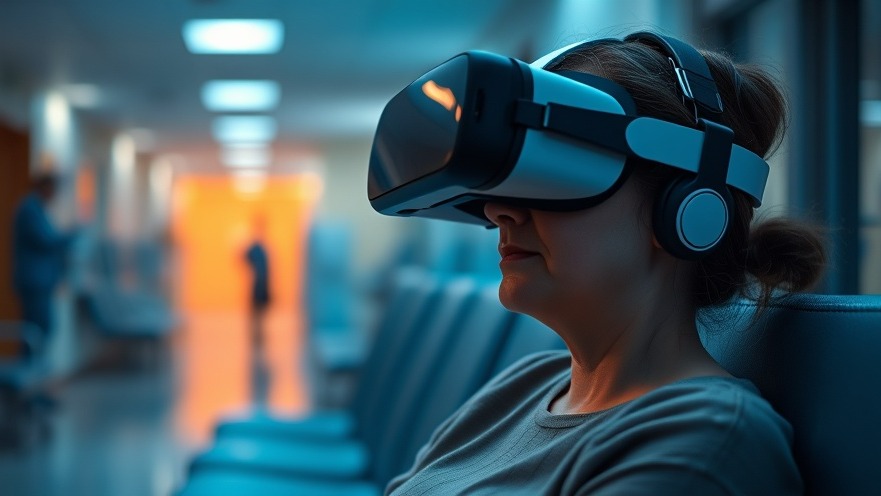
Virtual Reality Healing: A Game Changer for Stressed Parents
The journey of parenting is already laden with challenges, but having a child in the hospital can amplify stress and anxiety significantly. Recent studies conducted by Stanford Medicine reveal an innovative approach to alleviating this burden for parents. Guided virtual reality (VR) meditations are proving to be a remarkable adjunct to traditional care practices, allowing parents to prioritize their mental health while tending to their child's needs.
Understanding the Impact of Hospitalization on Families
Hospital stays often create an emotional rollercoaster, with parents feeling helpless and anxious about their child's health. The research conducted by Stanford demonstrates that nearly 30% of parental anxiety can be alleviated through immersive VR meditation. This is particularly pertinent for caregivers from diverse linguistic backgrounds, including many Spanish-speaking families, suggesting a wider application for VR as a standard supportive therapy in healthcare environments.
The VR Meditation Experience: Tranquility at Your Fingertips
The mediation experience transports users to serene landscapes that allow them to escape the stressful hospital environment, even if just for a few minutes. In the six-minute session, participants find themselves in a calming mountain scene, encouraged to breathe deeply and focus their minds. This sensory engagement may help reduce anxiety and build resilience among caregivers, making it a vital tool in emotional support within pediatric care settings.
Innovative Technology Meets Healthcare: The Benefits of VR
Integrating technology into healthcare offers numerous advantages, especially in mental health. The application of VR meditation is an interesting evolution that brings therapeutic techniques to patients and caregivers irrespective of their schedules or language barriers. The VR meditative practices can be deployed broadly, offering a scalable solution in hospitals that often struggle to meet the mental health needs of every guardian of an admitted patient.
Challenges and Limitations of Traditional Mental Health Support
Providing comprehensive emotional support in a busy children’s hospital poses significant challenges. With only a handful of mental health practitioners available, accommodating the needs of every distressed parent can be daunting. Virtual reality serves as a viable alternative that addresses resource constraints while fostering a greater sense of community and support. This technology offers an equal opportunity for everyone, reducing stigmas associated with seeking help and facilitating easier access to mental wellness resources.
The Future: Shaping the Standard of Care
As healthcare continues to evolve, we see an incredible trend toward integrating technology to improve patient and caregiver experiences. The early success of VR meditation in reducing parental anxiety may lead to further studies aimed at making this approach commonplace in hospitals worldwide. The goal is clear: to elevate family-centered care and address mental health proactively and effectively, transforming how we think about adjunct therapies in high-stress environments.
Conclusion: Embracing Technological Solutions in Healthcare
The findings from Stanford highlight a promising avenue in pediatric care, where mental health resources can be embraced as integral components of a child’s treatment journey. As concierge health practitioners remain committed to enhancing the patient experience, understanding and implementing innovative solutions such as virtual reality will be crucial in transforming how healthcare providers support families during challenging times.
 Add Row
Add Row  Add
Add 




Write A Comment